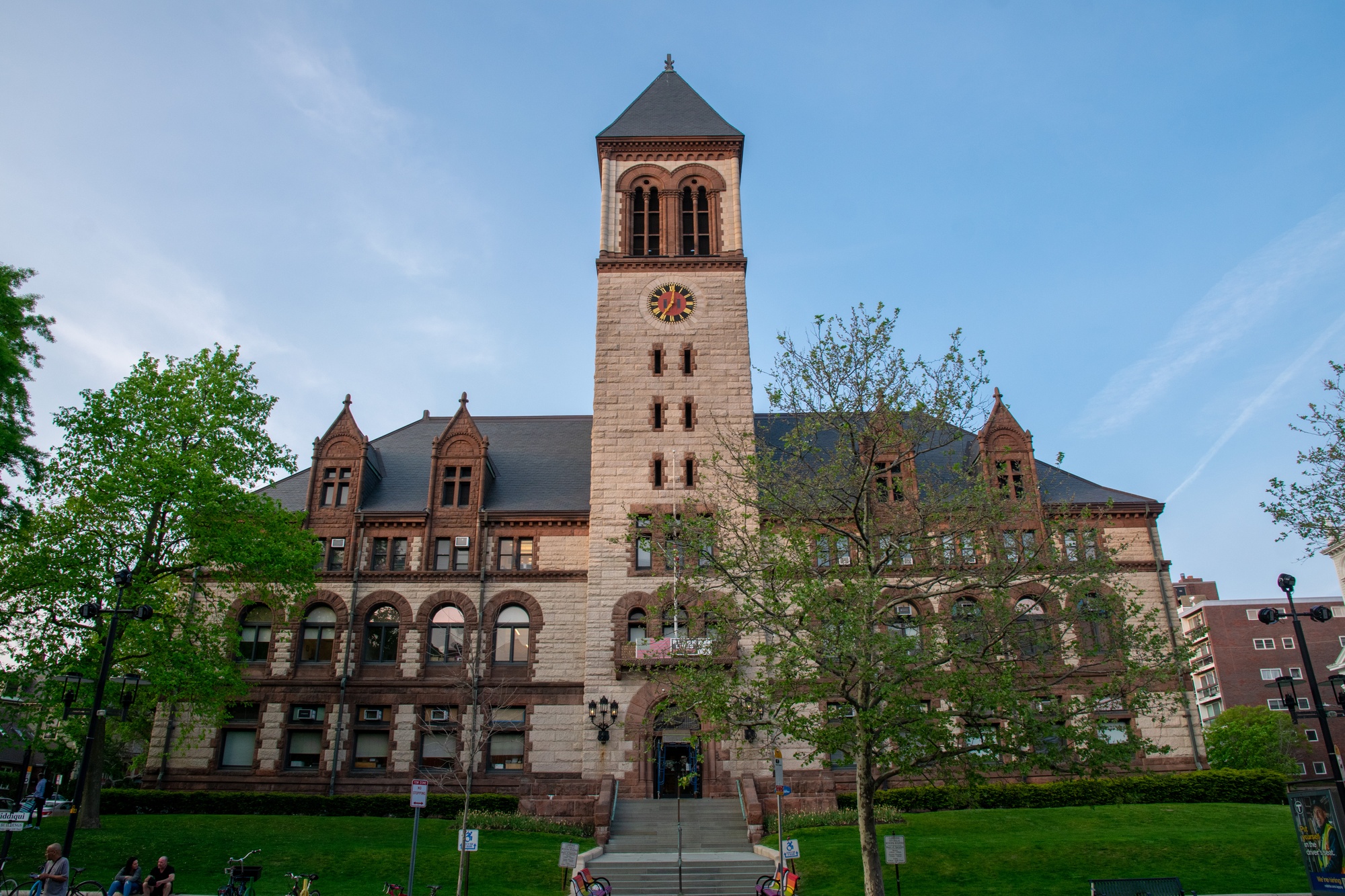The Cambridge City Council voted to close the Transition Wellness Center on Monday, ending a monthslong debate as they requested a $1 million allocation for housing vouchers to support residents’ transitions to alternative sites.
The TWC — one of Cambridge’s largest shelters for unhoused people — will close on June 8 after “all guests are safely placed in off-site locations,” according to city spokesperson Jeremy H. Warnick. As of April, 19 TWC residents have been placed in permanent housing in affordable units across the city.
The TWC has been federally funded through the American Rescue Plan Act since it opened in 2020, providing 58 beds for unhoused individuals. But as more than $88 million of the TWC’s ARPA funding runs out, the Council has hotly debated the feasibility of using the city’s funds to keep it open since February. Monday’s vote puts an end to any such plans.
The TWC is housed in Spaulding Hospital and was intended to operate until 2023 before the Council extended its lease for an additional two years. But with its lease expiring in June, dozens of residents have scrambled to find housing elsewhere.
While more than half of the TWC’s residents have found housing or space in another shelter, Warnick wrote that fewer than 20 residents still have no housing.
The Council shifted to prioritize the TWC residents without permanent housing arrangements. Eight councilors requested that the city allocate $1 million to fund roughly 25 additional emergency housing vouchers in a Monday policy order.
The vouchers, issued by the Cambridge Housing Authority, can be used to rent permanent housing in the city. Still, there is no guarantee residents will receive a voucher before the TWC closes next month. Vouchers must be applied for, and the waitlist is thousands of names long.
Though some advocated for TWC residents to receive the vouchers directly, they will have to apply through the same process as other residents.
“There will be a criteria-based community process to ensure equitable access for those in need,” Warnick wrote in a Tuesday statement.
If residents do not find other housing by June, they will be guaranteed a bed at 240 Albany St., a congregate shelter that provides housing for individuals who may be struggling with substance abuse.
“If they don’t find a different solution that they want or can access, there will be beds for them at 240 Albany St.,” Semonoff, the assistant city manager, said.
But for many, relocating to 240 Albany St. means giving up medical care and housing support services that they accessed through the TWC.
“Today, the director of TWC Spaulding told me that I’m leaving to 240 Albany tomorrow, which is inferior level compared to Spaulding TWC,” Youssef Jilal, a TWC resident, said in the Monday meeting.
240 Albany St. and the TWC are operated by Bay Cove Human Services, a city-contracted nonprofit that came under fire at Council meetings last year for alleged hostility from staff and unsanitary conditions.
Councilor Catherine “Cathie” Zusy, the only councilor to vote against the $1 million allocation on Monday, worried that increasing funding would only exacerbate the strain on the city’s resources.
“We’re up to $20 million for the unhoused which, again, is a group that will continue to grow as long as we support it,” Zusy said, referencing the funding that the city allocates to a number of shelters and housing support programs annually.
“These are difficult times, and I want everybody to have a bed to sleep on, but I am a little concerned about whether this is the right use of resources,” she added.
Vice Mayor Marc C. McGovern — who led the charge to keep the TWC open —accepted that the TWC would inevitably close in spite of concerted efforts to turn the decision around.
“As much as I would prefer that the Transition Wellness Center remain open, that’s not in the cards,” McGovern said, adding that the additional funding would help make the transition for the shelter’s current residents easier.
“What is clear is that, at the very least, the folks who are in the Wellness Center now would be eligible to apply for these vouchers, at the very least, and so that’s a good thing,” he said.
—Staff writer Laurel M. Shugart can be reached at [email protected]. Follow them on X @laurelmshugart or on Threads @laurel.shugart.
—Staff writer Grace E. Yoon can be reached at [email protected]. Follow her on X @graceunkyoon.
link

